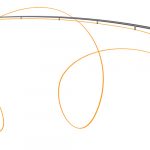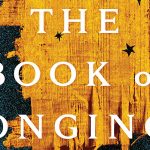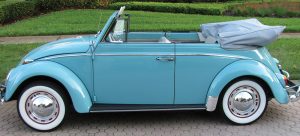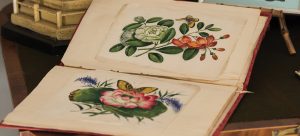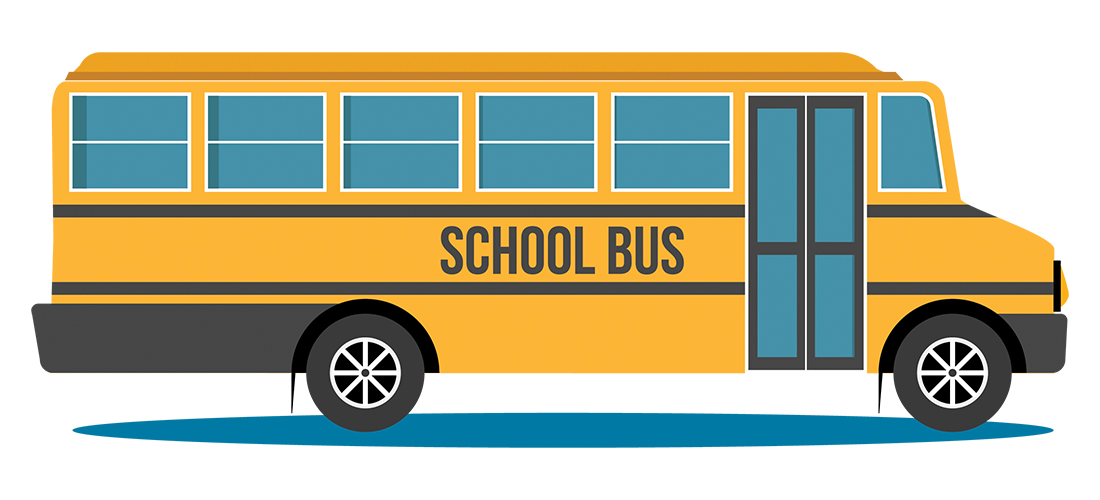
Old School
This year’s fall semester will be a far cry from what it used to be
By Billy Eye
“What we need now is some new, fresh clichés.” — Samuel Goldwyn
When I was young, August signaled the beginning of the end of summer, with school rapidly approaching, one chapter closing while another opened. That started me thinking of going-back-to-school rituals — a trip to Blumenthal’s (aka “the Store with a Heart”) for new jeans and Converse Chucks, Straughan’s bookstore downtown for notebooks and pens — and how young people today are liable to experience something drastically different from what any of us ever expected on the first day of school.
I thought it might be nice to reminisce with a couple of former schoolmates, like me Page High class of ’74 grads, about what school life was like in decades past before preapproved standardized lesson plans and teaching for mandatory testing.
Adelaide Fortune and I attended school together from first grade at Irving Park through middle school at Mendenhall, and on to graduating from Page. Today she owns a, whoops, corner-copia of classy kitsch on Spring Garden, Adelaide’s Vintage Home & Garden.
“My store tends to be more cottage-style furniture,” Adelaide tells me. “We specialize in painted pieces, mid-century and small goods that I recycle and repurpose.” While she sells one-of-a-kind furnishings for vacation homes and the like, “Mostly I sell to couples who are starting off their homes, accumulating dressers, dining room tables and chairs, they’re one of my biggest customers. A lot of our furniture is 1920s, 1930s,” Adelaide notes. “Furniture in need of an uplift that I paint. So I don’t always look for something that’s in pristine shape. I think by painting furniture, you give it a more contemporary feel.”
It’s one of the demands of her market, driven by yet more generational differences between our generation and those that came after. I remarked that the trend for young people today seems to be Rooms To Go, where customers can select an entire suite of furnishings at once. “Also, a lot of people have their passed-down parents’ furniture and they’re not really liking it,” Adelaide says. “It’s brown, boring, but when they see it painted they’re like, ‘Oh, maybe I should paint more of these pieces.’ Because it’s a whole new look.”
Her business acumen is an indication of Adelaide’s academic record. Besides being one of our brighter students, she was a member of the Homecoming Court at Page. “In high school there’s such a social structure,” she observes. “We had service clubs, you went to football games, homecoming, pep rallies, art classes, band practice . . . it’s such a shame if kids are not able to have that. At least there’s social media now so they can Skype and FaceTime one other.”
They’re also missing out on the community of teachers and administrators who keep the show running, and the group participation we enjoyed at Page, “We liked our principal, Mr. [Robert] Clendenin, very much. You could just casually walk into his office and talk with him,” Adelaide recalls. “Mrs. [Luvenia] Chavis, my chemistry teacher, I loved her. Mrs. Newman was an English teacher. She would dress up in some costume depending on what we were studying; we would stand up in class and recite The Canterbury Tales and Shakespeare. She was, by far, one of my favorite teachers. Those are the two that really stand out to me, they were so creative in the way they taught.”
Another aspect of student life for many of us was an after-school job. “My parents said, ‘If you want money to put in your car you gotta go get a job,’” Adelaide says, word for word what my father told me. “So I worked at Mayberry one summer. We had to wear those ridiculous outfits, those pink and white striped dresses, then all your friends would show up and you had to face them. I also worked at Roy Rogers where we had to wear those little cowboy hats and greet customers with, ‘Howdy partner, can I take your order?’ Even when friends from school showed up, they expected you to say that.”
Senior year she worked at Brown-Gardiner. “Everyone bought everything on credit,” Adelaide says. “They’d say, ‘Charge this on my account’ and you’d fill out a form for them.” Instant credit checks weren’t possible back then, “How many drugstores do that anymore?”
Hard to believe but as long as you were at least 16 years old, male or female, and you possessed a driver’s license, then passed written and driving tests, you were qualified to drive a school bus. All city school buses were piloted by students. Paid good money as I recall.
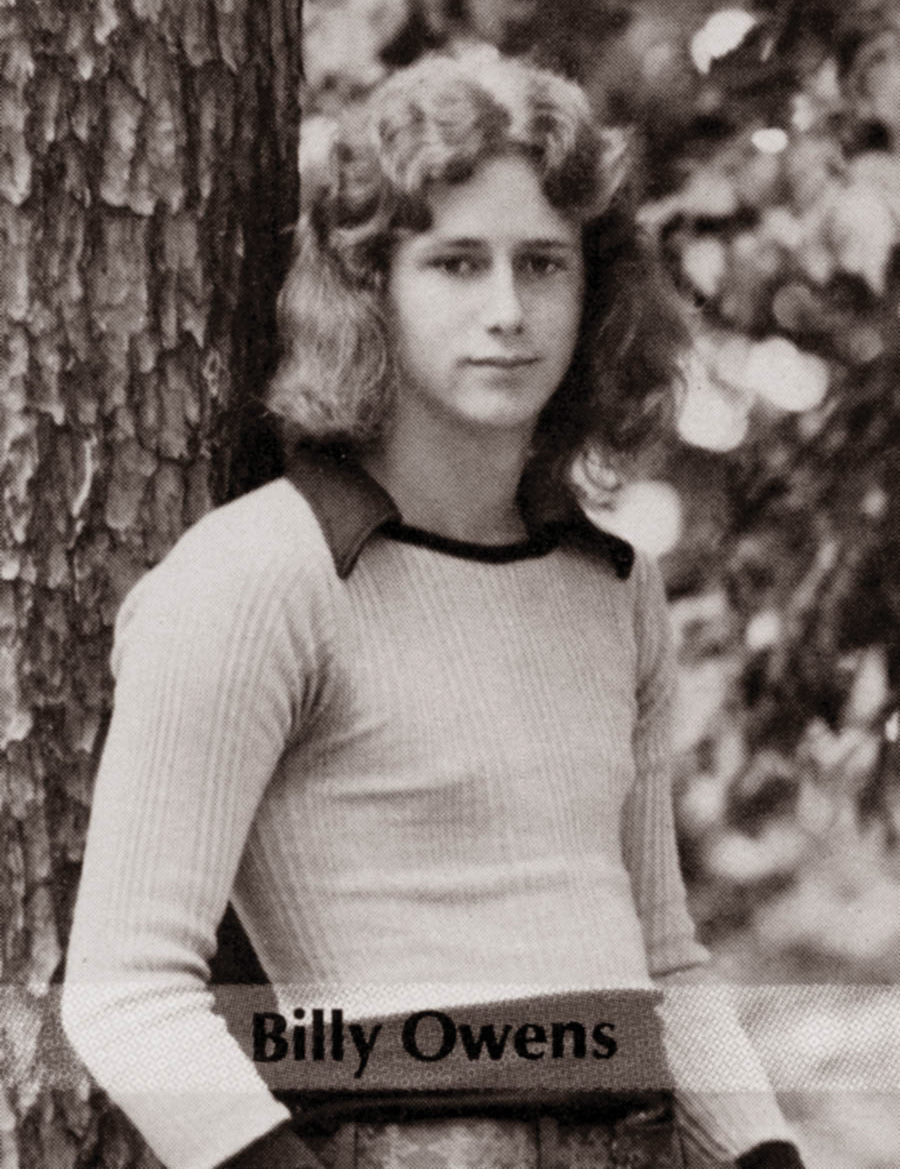
Page, Mendenhall and Claxton Elementary drivers were all “Road Runners,” a Junior Woodchucks version of Hells Angels, more Quisp than Crip. They wore jean jackets with the words “Puro Carajo” (Pure Fornicators in polite conversation) stitched around the shoulders in Old English font (all caps naturally, so as to be nearly unreadable), with similarly stitched “Road Runners” below, circling a crude rendition of the elusive bird harnessing a lightning bolt. Road Runners were always out in force protecting the pirate ship from Whirlies sabotage on the week before the Page-Grimsley football games, often in vain.
Another Page alumna, Trisha Costello, owns Carriage House in the Golden Gate Shopping Center. “We are a home décor and accessories store,” Trisha says. “I’ve been in furniture sales for 20 years now after I met Wally Freemon who said, ‘I’m opening a store, do you want to run it for me?’ and I said, ‘OK’ and then ended up taking over the business.”
Carriage House specializes in unique items for beach houses, mountain homes, a little bit of everything for everybody’s domicile. “We love antiques and look for quality, scouring estate sales and stores all over the country. Chinoiserie items are always a big seller, it’s a Chinese look, very popular. Also English, Italian and some American pieces.”
Looking back on school days, “I was a Catholic girl so I went to St. Pius instead of Irving Park but I attended Mendenhall and Page,” Trisha says. “At Page there was an English teacher, African-American, Tony Bryant, I had him for homeroom, he was the greatest. I loved Mrs. [Margaret] Garrett, she taught English lit. And Mrs. Newman, she taught literature and creative writing, little short lady. She might have been my biggest influence. She taught me to think for myself.”
Not at all odd that Adelaide, Trisha and I were all profoundly affected by Mrs. [Jean Davis] Newman’s tutorage. She inspired me to pursue the goal of becoming a writer. Before coming to Page in 1971, she was frequently voted Teacher of the Year at Grimsley. One wonders how many hundreds, thousands, of others she inspired over her 30-plus-year career.
Just before our get-together, Trisha and I received the devastating news that Billy Owens, my cousin and her lifelong friend, had died of a heart attack. Just 65 years old and beginning his retirement after 45 years working at Ensco Supply, Billy received his first Social Security check days before passing.
“I met Billy when I was about 10 years old, out at Sherwood,” Trisha recalls. “He and my brother Kevin were good friends so he was at our house a lot. We always consider him to be our fifth brother.” Billy, known by the nickname ‘Brother’ in our family, “Always looked dapper,” Trisha says.
A perpetually upbeat guy with an underlying sarcastic wit, I can’t remember any occasion when Billy Owens wasn’t smiling. One friend of his noted that the only time he ever saw Billy lose his cool was in defense of the Tar Heels’ basketball team. Upon hearing the news of his death I was, for once, glad my mother wasn’t alive. It would have been too devastating.
For the rest of us, at future gatherings, reunions and over holidays, comes the painful reminder that there’s one less Brother in all of our lives. OH
Billy Eye wonders if you would allow a random 16-year-old to drive your first grader to school.

